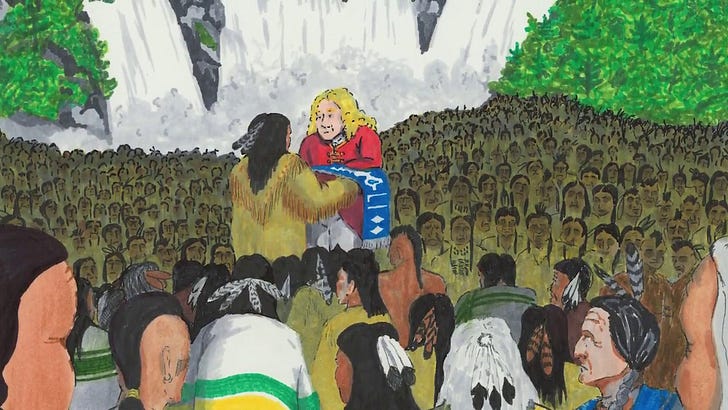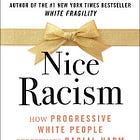Crisis talks: Far fewer than 7 generations, what has value, and the future of British North American settler-colonialism
Recently I’ve reconnected virtually with Jesse Hirsh, who is hosting MetaViews. I have been making comments on some of the podcasts and articles in the notes part of this site, as well as some articles.
The following is Jesse Hirsh interviewing Mike Oppenheim, the other direction to the previous podcast. The title of this article is a riff off what they called that episode, but from a lens that may be outside more common Canadian or US values/culture.
52: Crisis Talks: Boomers, Money, and the Future of America
Generations
I’m not wanting to spend too much time on Western demographic cohorts, or which cohorts were “in control” and which were merely observers. I don’t think there is value in looking at manufactured generational silos and their potentially competing interests. I believe Western worldview loyalists should be transitioning to thinking more like domestic leagues of Nations such as the Haudenosaunee and the Anishinaabe that talk in terms of Seven Generations. We should never be in competition, or impose hierarchies.
I do not believe under current Western worldviews that the average person will be living longer in the future than today, and believe it is more likely the average will be shorter lives. Under Western hierarchies, technologies don’t get evenly distributed. I hear what Mike was trying to say, but want to suggest he watch the Altered Carbon TV series if he hasn’t already.
Money? Debt.
I’ve had a gut reaction over my lifetime about money. I finally read a book that resonated with me, which is “Debt: The First 5,000 Years“ by anthropologist David Graeber.
Crypto is yet another virtual currency, but fundamentally we are talking about debt under Western worldviews.
In the 1990’s I joined Local Employment and Trading Systems (LETS), but like many other choices from that time (like living in a Housing Cooperative) that provided me an education on what I didn’t like about certain worldviews.
I don’t buy into the theory of the barter origins of money, as I don’t believe other peoples/cultures (or even in the West’s past) were as narrowly tied to individualism. Trade to me is something you do between peoples (more generic than talking about “nations” or “tribes” or other sometimes loaded language), but not between “individuals”.
I’m generally opposed to the idea that humans need to generate hierarchy, which was the theme discussed within the context of a replacement to money and referencing Black Mirror. Whether we are talking about “social” credit scores or other types of hierarchy and debt, we still haven’t moved away from a narrow set of worldviews that focus on creating and imposing social and other hierarchies. I don’t see that as the future, but the continuation of a foreign (to this continent) past.
Ongoing British North American settler-colonialism
I was happy to hear the discussion of the potential escalation of the current rift between the Canadian and US governments being like a civil war. I don’t know if our “Radical American Wackadoo” friend will feel about the way I think, which is far outside of Canadian ways of thinking (so don’t take this as “Canadian” thinking).
I look at British North American settler-colonialism after the inter-European colonial wars, with the “last” of those wars being what some call the Seven Years War that ended in 1763. The treaty ending that war included France ceding their already-flawed claims to the mainland of this continent. These inter-European colonial wars included domestic nations as allies of various European nations, with treaty relations (relations, not archival documents) being core to how the domestic nations interact with each other and interact with these foreign nations.
Soon after the inter-European colonial wars, we entered into the era of the intra-British North American colonial wars. How things are named is political (“Gulf of America”). I don’t believe there was a “War of Independence” (1775 - 1783) and a “Civil war” (1861 to 1865), but two (of many) British North American settler-colonial civil wars.
The British Royal Proclamation of 1763 and the Treaty of Niagara of 1764 were intended to set up normal relations between domestic nations and European visitors, but unfortunately Europe has never had a history of what would be considered “normal” relations for this continent.
Britain passed laws so colonists would be paying their fair share for wars they primarily benefit from, and also laws against what we would today call genocide. I have read about the so-called “intolerable acts” that were used to justify the first civil war. While I’m not a fan of any settler-colonial governments, I disagree more strongly with the separatists in each of these civil wars.
I see the Dominion of Canada, and the 11 British North America Acts not as the creation of an independent “nation”, but a branding exercise for colonies that remained loyalists to the British Empire rather than the colonies that formed the USA which are only loyalists to British empirical worldviews.
What is happening currently with talk about further merging British North American colonies (51’st State) shouldn’t be surprising, but a continuation of what was started in the 1770’s.
Settler-colonialism is in many ways the most extreme form of the “sovereign citizen” movement. What the Trump regime is talking about isn’t really all that different from what the (political, economic, corporate, colonial) elites in Alberta and Quebec are talking about as far as their desire to create new Eurocentric (White) Nations on land which they have no legitimate claims to, and a desire to ignore the pre-existing governance, treaties, etc.
While many Canadians think the Trump regime is dishonest with how it treats treaty partners, it is not like Canada has been any better. There is land clearly kept separate from colonial occupation under British law for leagues of Nations such as the Haudenosaunee Confederacy, such as with the Haldimand Proclamation. The Mohawk were allies with the British against the French and the 13 separatist colonies. While the Haudenosaunee continues to be allies with the British, and even declared war against Germany for WW1 and WW2 as British allies, Canada remains a scofflaw set of institutions that continues to violate basic treaty obligations to allies.
Trump and the USA are out and proud while being dishonourable, while Canadian loyalists and the government are simply superficially “polite” while being dishonourable.










It's all over all the stuff I write, but basically, I just feel and know trends as they come and go (we all do) and this violent push against where we're going is a thrust, for sure, but it'll soon be a whimper. Misdirecting people to fight about causes and roots of what's really going on (we've enabled greed and fear to rule all of us) is the real problem, and the violence in both directions is losing its momentum, not gaining it. I can't cite evidence for optimism or pessimism, they're just human conditions, really, if you're content right now, you're going to feel like the world is content, and if you're unhappy right now, you're inclined to argue that an externality is making you unhappy. Figuring out how to be content is the only thing we need to do. We want to cite history, data, research, and play blame games, but monocultures fight just as nasty and with the same logical fallacies as multicultural ones do. It's human to oscillate between fear and greed, but we CAN get better at our reactivity. I'm optimistic that young people are seeing how pointless it is to blame history and institutions, and how important it is to build emotional resilience and cooperative mental health strategies to stay the course and be less reactive.
I loved this, and despite your cited source and other contrarian opinions, I believe science (specifically pharmaceuticals and robotics) will extend the average "old person's" median age to about 100...I think this will occur around 2040, but not sooner. I am basing this on nocebo and placebo research and the recent developments in artificial heart transplants and genetic revelations with stem cells and injection. BUT, I happily agree to disagree!